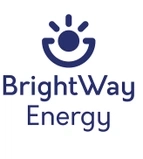Benefits of Solar Energy
Solar energy has several advantages that will enhance your home for years to come.
- Reduced carbon footprint: Using clean solar power lowers your dependence on conventional, less environmentally-friendly sources.
- Lowered energy bills: You can skip the added cost of grid-tied power by creating some electricity right where you use it. Plus, many states offer net metering which can allow you to sell your unused energy back to credit part of your bill.
- Better energy independence: Adding a battery backup or storage system lets you have dependable energy during storms and grid outages.
What Solar Incentives Are Available to Newton Homeowners?
Massachusetts agencies and electric companies offer several solar incentives to help lower your solar system costs. Here's a breakdown of eligible solar programs where you live.
Incentive Type: Property Tax Incentive
Website: in.govIncentive Amount:
Solar energy systems used for heating or cooling: out-of-pocket expenditures by the owner for the components and labor
Wind, hydroelectric, geothermal, solar thermal, solar PV, and other solar energy systems: the assessed value of the system
Incentive Type: Personal Tax Credit
Incentive Amount:
15%
Incentive Type: Sales Tax Incentive
Website: mass.govIncentive Amount:
100% exemption
Incentive Type: Industry Recruitment/Support
Incentive Amount:
100% deduction
Incentive Type: Rebate Program
Website: capelightcompact.orgIncentive Amount:
Appliances
Refrigerator and Freezer Recycling: $125
Electric Clothes Dryers: $50
Clothes Washer: $350
Dehumidifiers: $30
Room Air Purifiers: $40
Room Air Conditioner: $40
Heating & Cooling
Oil Heating System: Up to $800
Propane Heating Equipment: Up to $2,300
Oil Water Heater: Up to $400
Propane Water Heater: Up to $800
Heat Pump Water Heater: Up to $600
Central AC/Heat Pump: Up to $250/ton
Mini-Split Heat Pump: Up to $250/ton
Programmable Thermostats: Up to $25
WiFi Thermostat: Up to $100
Solar Domestic Hot Water heater: $500 - $1,500
Home Electronics
Advanced Power Strips: Varies
Home Insulation
Limited Time Enhanced Incentive: 75%
Year-Round Tenant Incentive: 100%
Enhanced Residential Program: 100%
Lighting
LEDs: Varies
Home Energy Assessment: Free
Incentive Type: Performance-Based Incentive
Website: masmartsolar.comIncentive Amount:
(Base compensation rate + compensation rate adders - greenfield subtractor) * total kWh generated - value of energy generated
Incentive Type: Loan Program
Website: masssolarloan.comIncentive Amount:
Maximum required: $35,000; maximum possible: $60,000
Incentive Type: Rebate Program
Website: masscec.comIncentive Amount:
New GSHP Rebate: $2,000 per ton with adders to eligible applicants
Retrofit Existing GSHP Rebate: varies with installation costs
Incentive Type: Rebate Program
Website: masscec.comIncentive Amount:
Standard Residential:
Pellet Stove: $1,000 - $1,750
Catalytic Woodstove: $750 - $1,250
Non-Catalytic Woodstove: $500-$1,250
Fully Automated Wood Stove: $1,500 - $1,750
Low-Income Residential:
Pellet Stove: $2,500 - $3,250
Catalytic Woodstove: $2,250 - $2,750
Non-Catalytic Woodstove: $2,000-$2,750
Fully Automated Wood Stove: $2,750 - $3,250
Incentive Type: PACE Financing
Incentive Amount:
Financing amount locally determined; 20-year financing term
Incentive Type: Solar Renewable Energy Credit Program
Website: mass.govIncentive Amount:
Varies, depending on market supply and demand
Incentive Type: Personal Tax Credit
Website: ecowatch.comIncentive Amount:
30% federal tax credit for systems placed in service after 12/31/2021 and before 01/01/2033. Good for: solar water heat, solar photovoltaics, biomass, geothermal heat pumps, wind (small), fuel cells using renewable fuels.
How To Choose the Best Solar Company in Newton
The more thorough your company research is, the better your solar installation will ultimately work. Make your choice based on the following crucial aspects.
Licensing and Training
Massachusetts requires new solar photovoltaic systems in the Commonwealth to be installed by a licensed electrician and new solar water heaters to be installed by a construction supervisor. Check for private accreditations from the North American Board of Certified Energy Practitioners (NABCEP), one of the solar sector's most respected trade groups. Its program includes certifications for both solar photovoltaic and water heating installers.
Cost of Solar Panels in Newton
Your photovoltaic panels' model will influence how much energy you can produce. Monocrystalline panels are among the highest quality and cost the most but perform the best. Polycrystalline panels offer you a budget panel with a traditional design, but at the cost of less power generation. Thin-film panels have a low cost and are excellent for non-traditional roofs, but aren't recommended for large home installations.
You can also add battery backups and electric vehicle (EV) chargers. These will increase your total installation cost, but they can increase your solar system's efficiency. Not every solar contractor includes these add-ons, so look for a provider that installs them if it's essential for you.
If you're a resident of Newton and want a five-kilowatt solar energy system, you could plan to spend about $20,300 for parts and installation. Find more information on specific component and solar panel costs in the table.
| Solar Panel Cost | Average Cost |
|---|---|
| Solar Monocrystalline | $1,241 |
| Solar Polycrystalline | $968 |
| Thin-Film | $566 |
| Solar Battery | $794 |
| Solar Home EV Charger | $2,978 |
Financing Solar Energy in Newton
There are various ways to pay for a solar energy system, and the right one will help you decrease overhead. A few of the most common options include power purchase agreements (PPAs), leases, cash payments, and loans. Though it requires a large up-front payment, cash is the most affordable choice because it qualifies you for solar incentives and doesn't accrue interest. Solar loans are the second most effective option. As with a car loan or mortgage, you'll pay a monthly rate towards system ownership, including interest. You can still apply for money-saving solar incentives, and depending on your lender, you could put as little as $0 down. Solar leases involve paying a set monthly rate to use rooftop panels. A PPA (Power Purchase Agreement) lets you pay a monthly rate determined by the energy you use, similar to an electric bill. We typically don’t recommend these two choices because you won't own the solar system and are disqualified from using solar incentives. Ask each installer you're evaluating about the financing options it offers. A staff member can help you determine the best option for your budget.
The table below lists the average payback periods for different capacities of solar systems in Newton.
A 26% federal solar tax credit applies to new home solar systems purchased through 2032. Extra incentives may be available through local governments, usually in the form of rebates and special financing programs.
| Solar System Capacity | Estimated Payback period |
|---|---|
| 1 kW | 2.0 years |
| 2 kW | 3.9 years |
| 5 kW | 9.8 years |
| 10 kW | 19.6 years |
Ready to Get a Quote on Your Solar Project?
Please enter a valid 5-digit zip code!
Frequently Asked Questions About Solar in Newton
How much energy and money could I save per year by switching to solar?
Is solar energy common in Newton?
Will a solar PV system raise my Newton home worth?
What if I live in a rainy or gloomy
How long does the solar panel installation process last?
What maintenance do my solar panels need, and how frequently do they need it?
How does "net metering" work, and do I need to participate?
Some states or power companies require you to enroll in net metering when purchasing your solar system, while others give you a choice. Either way, once you participate, you'll receive a check or bill credit for your excess generation at a retail or wholesale rate.
How are a solar lease and PPA different?
You don't own the panels with either option, though you can choose to "buy out" of the contract for a fee.
To share feedback or ask a question about this article, send a note to our Reviews Team at reviewsteam@thisoldhousereviews.com.

















